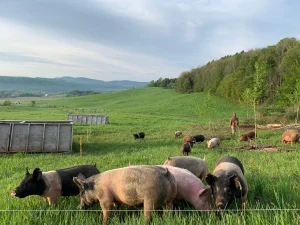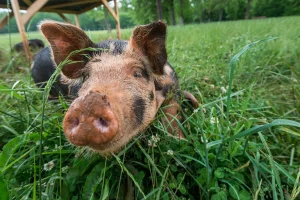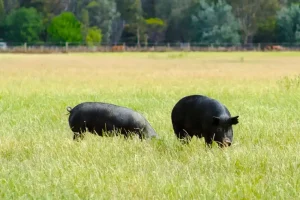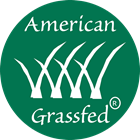
Pastured hogs represent a return to natural swine farming, emphasizing animal welfare, environmental sustainability, and production of nutrient-rich pork. This regenerative farming method allows hogs to forage freely on grasses, roots, insects, and other natural foods, resulting in flavorful pork with higher omega-3 fatty acids and without the use of antibiotics.
Natural Diet and Animal Welfare

In natural swine farming, hogs are raised outdoors on pasture or forested areas where they can express instinctive behaviors like rooting, foraging, and exploring. Their diverse diet from the pasture—including plants, insects, and roots—supports better gut health and nutrition, contributing to leaner, more nutrient-dense meat. Unlike industrial confinement systems, where hogs are crowded indoors with limited movement, pastured hogs experience lower stress and improved overall well-being, which enhances meat quality and animal health.
Soil Health and Ecological Benefits
Pastured hogs play an active role in soil regeneration and ecosystem health through their natural behaviors. Their rooting aerates and disturbs the soil, which promotes soil turnover and enhances microbial activity, improving soil fertility. The even distribution of manure acts as a natural fertilizer, cycling nutrients back into the soil and boosting pasture productivity. This contrasts sharply with confined hog operations that concentrate waste in one area, often leading to pollution and ecological harm.
Rotational grazing practices move hogs regularly across paddocks or forest plots to prevent overuse of any area, which allows vegetation to recover and maintains biodiversity. This adaptive management enhances long-term pasture health and prevents land degradation.
Environmental Sustainability
Compared to conventional hog confinement systems, natural swine farming substantially reduces environmental harm. Industrial pig farms require large feed inputs, water, and often depend on antibiotics and growth hormones. They produce concentrated waste that can pollute waterways and degrade ecosystems.
In contrast, pastured hog systems utilize natural forage and manage manure more sustainably. By stimulating soil health, promoting plant diversity, and avoiding synthetic inputs, natural swine farming supports resilient farm ecosystems, reduces greenhouse gas emissions, and aids in carbon sequestration.
Flavor and Nutritional Quality
Pastured pork is often described as more flavorful and tender than conventional pork. Research and farmer testimonials highlight its higher omega-3 fatty acids, vitamin D, and other essential nutrients, which result from the hogs’ natural diet and active outdoor lifestyle. The meat’s superior quality appeals to health-conscious consumers and those seeking ethically raised, sustainable food sources.
Heritage Breeds and Genetic Diversity
Many natural swine farmers use heritage or rare breeds well-suited to life on pasture. These breeds have evolved natural foraging behaviors and resilience to outdoor conditions, contributing to genetic diversity in swine populations. Raising heritage breeds supports conservation efforts and preserves traits lost in conventional production systems focused on uniform, fast-growing strains.

Sources
- The Farms of Illinois – Benefits of Regenerative, Pasture-Raised Pork
https://www.thefarmsil.com/blog/benefits-of-regenerative-pasture-raised-pork - Rodale Institute – Pastured Pork
https://rodaleinstitute.org/why-organic/organic-farming-practices/livestock-management/pastured-pork/ - Noble Research Institute – What is Regenerative Agriculture?
https://www.noble.org/regenerative-agriculture/ - Wisconsin Meadows – Pastured Pork: What’s the big deal?
https://wisconsinmeadows.com/pastured-pork-benefits/ - Oregon State Extension – Benefits and Challenges of Pasture-Based Pork Production
https://extension.oregonstate.edu/animals-livestock/swine/benefits-challenges-pasture-based-pork-production - YouTube – Can Pastured Pigs Be Regenerative?
https://www.youtube.com/watch?v=VEbU3zQbcdQ - 21 Acres – Raising Sustainable Pork: Why Pastured Pigs?
https://21acres.org/blog/raising-sustainable-pork-why-pastured-pigs/ - Hickory Nut Gap – The Benefits of Pasture-Raised Pork
https://hickorynutgap.com/the-benefits-of-pasture-raised-pork/ - Cane Fork Farms – Health Benefits of Grass-Fed Beef and Pasture-Raised Pork
https://www.caneyforkfarms.com/blogs/news/you-are-what-you-eat-the-health-benefits-of-grass-fed-beef-and-pasture-raised-pork

